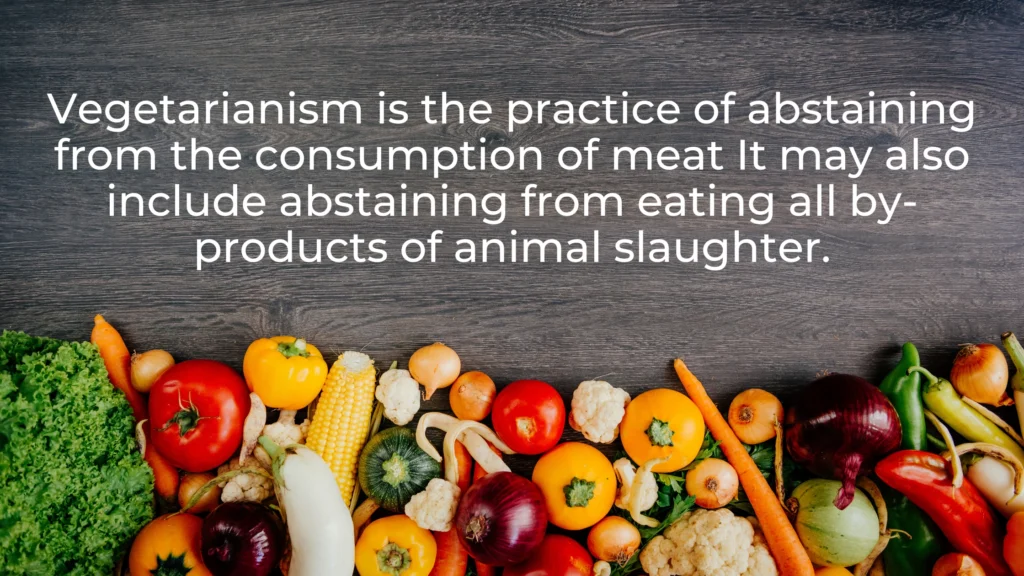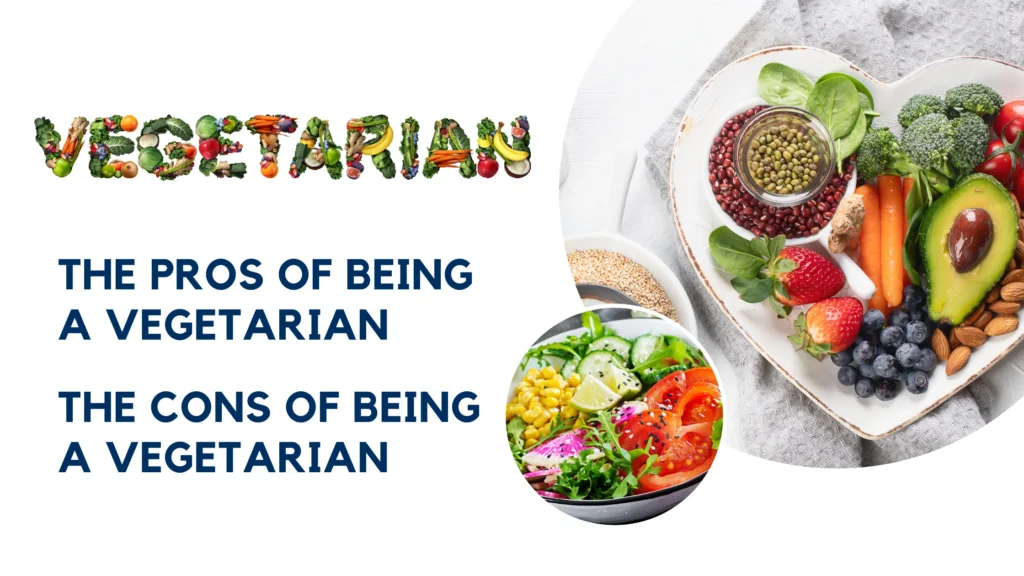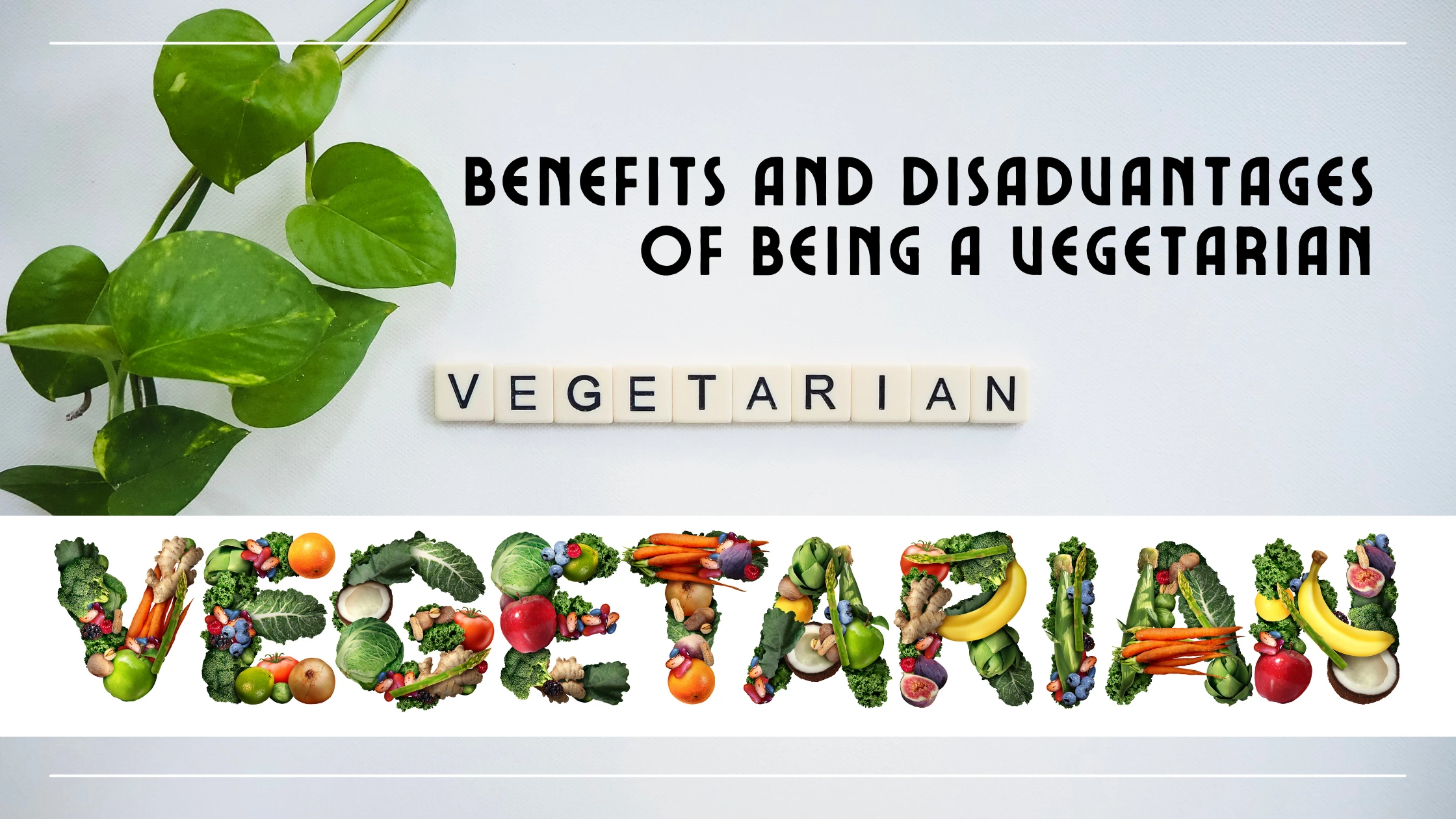Are you considering becoming a vegetarian? If so, it’s important to understand the pros and cons of such a lifestyle choice before taking the plunge. With this Ultimate Guide, you can make an informed decision about whether or not a vegetarian diet is right for you. We’ll go over the health benefits and potential drawbacks of being a vegetarian and offer tips for maintaining a balanced, nutritious diet. So, let’s dive in and explore the pros and cons of being a vegetarian.
The pros of being a vegetarian
There are many benefits to adopting a vegetarian lifestyle, both for your health and the health of the environment. Here are some of the top pros of being a vegetarian:
- Improved Health – Studies have found that vegetarians have a lower risk of developing chronic health conditions like heart disease, stroke, and diabetes than meat eaters. Additionally, vegetarians tend to have lower blood pressure and cholesterol levels.
- Ethical Reasons – Many people choose to become vegetarians for ethical reasons, believing it’s wrong to cause pain and suffering to animals by eating them. By opting for a vegetarian diet, you can help prevent animal cruelty.
- Economic Benefits – Meat is usually more expensive than plant-based alternatives, so vegetarianism can save you money in the long run.
- Environmental Benefits – Livestock farming is responsible for producing huge amounts of greenhouse gases, contributing significantly to climate change. Eating fewer animal products and more plant-based foods can help reduce the carbon footprint associated with food production.
- Variety of Foods – A vegetarian diet can be incredibly varied and delicious. Plant-based foods such as fruits, vegetables, grains, nuts, and legumes can offer an array of flavours and textures, making meals exciting and flavorful.

The cons of being a vegetarian
One of the most significant disadvantages of becoming a vegetarian is that you may lose out on key nutrients that can only be obtained from animal sources. These include vitamins such as B12 and minerals such as iron, calcium, and zinc. You also won’t be able to get omega-3 fatty acids from vegetarian diets, which are essential for optimal health. Additionally, some vegetarians may not eat enough protein, leading to muscle wasting, fatigue, and other problems.
You may also need help finding foods that fit into your vegetarian diet while eating out or travelling. A vegetarian diet can also be expensive due to the limited variety of plant-based proteins. You may also face social pressures from family members or friends who don’t understand your lifestyle choice.
Finally, some research suggests that vegans and vegetarians may have a higher risk of developing certain diseases, such as colorectal cancer, due to their diet. This is likely due to their lower intakes of some nutrients and their increased consumption of plant-based proteins, which can contain high levels of chemicals called heterocyclic amines.
Being a vegetarian can be challenging, but with proper planning and nutrition knowledge, it doesn’t have to be overwhelming. With the right approach and understanding of the pros and cons of being a vegetarian, you can decide what works best for you.
Pros of Being a Vegetarian:
- More nutrient-dense diets: A vegetarian diet is rich in essential vitamins, minerals, and antioxidants that promote overall health.
- Reduced risk of chronic disease: Studies show vegetarians are at a lower risk of certain conditions, including heart disease and certain types of cancer.
- Cost savings: A vegetarian diet can be more affordable than a non-vegetarian diet, as meat is typically more expensive than plant-based alternatives.
- Sustainability: By consuming fewer animal products, we reduce our environmental impact and make more sustainable food choices.
- Animal welfare: Choosing to forgo meat and dairy products can help improve the lives of animals.
Cons of Being a Vegetarian:
- Limited availability of food options: Not all restaurants offer vegetarian meals, so it can be difficult to find dining options when eating out.
- Increased effort to plan meals: A vegetarian diet requires more thought and action than a non-vegetarian diet.
- Dietary deficiencies: If not done properly, a vegetarian diet may lead to a lack of important vitamins and minerals such as B12, iron, zinc, and omega-3 fatty acids.
- Social pressure: People who follow a vegetarian lifestyle may face criticism or judgement from friends, family, or colleagues who don’t understand or accept their choice.
The benefits and downsides of being a vegetarian – the ultimate guide gives a complete look at the advantages and disadvantages of a vegetarian diet. Although there are several advantages to becoming a vegetarian, such as increased health and lower environmental impact, there are also possible drawbacks to consider. It is crucial to remember that everyone is unique, and what works for one person may not work for another. Finally, the greatest diet for you is one that suits you and your lifestyle.
Ultimately, there are both positives and downsides to being a vegetarian. While the benefits may outweigh the drawbacks for some people, it’s important to understand the potential risks associated with this lifestyle choice. Whether you’re considering becoming a vegetarian or already are one, consult with a doctor or nutritionist to ensure your dietary needs are being met.

Conclusion
The decision to become a vegetarian is a personal one. It’s crucial to understand the advantages and downsides of vegetarianism before adopting this lifestyle choice. While the benefits of vegetarianism include improving your health, reducing environmental impacts, and saving money, there are also some potential drawbacks. Vegetarians can have difficulty obtaining enough protein, be unable to eat out at certain restaurants and feel social pressure to stick with their diet. Ultimately, the pros and cons of vegetarianism should be weighed carefully, and everyone should decide what is best for them.


Write a comment
Your email address will not be published. All fields are required